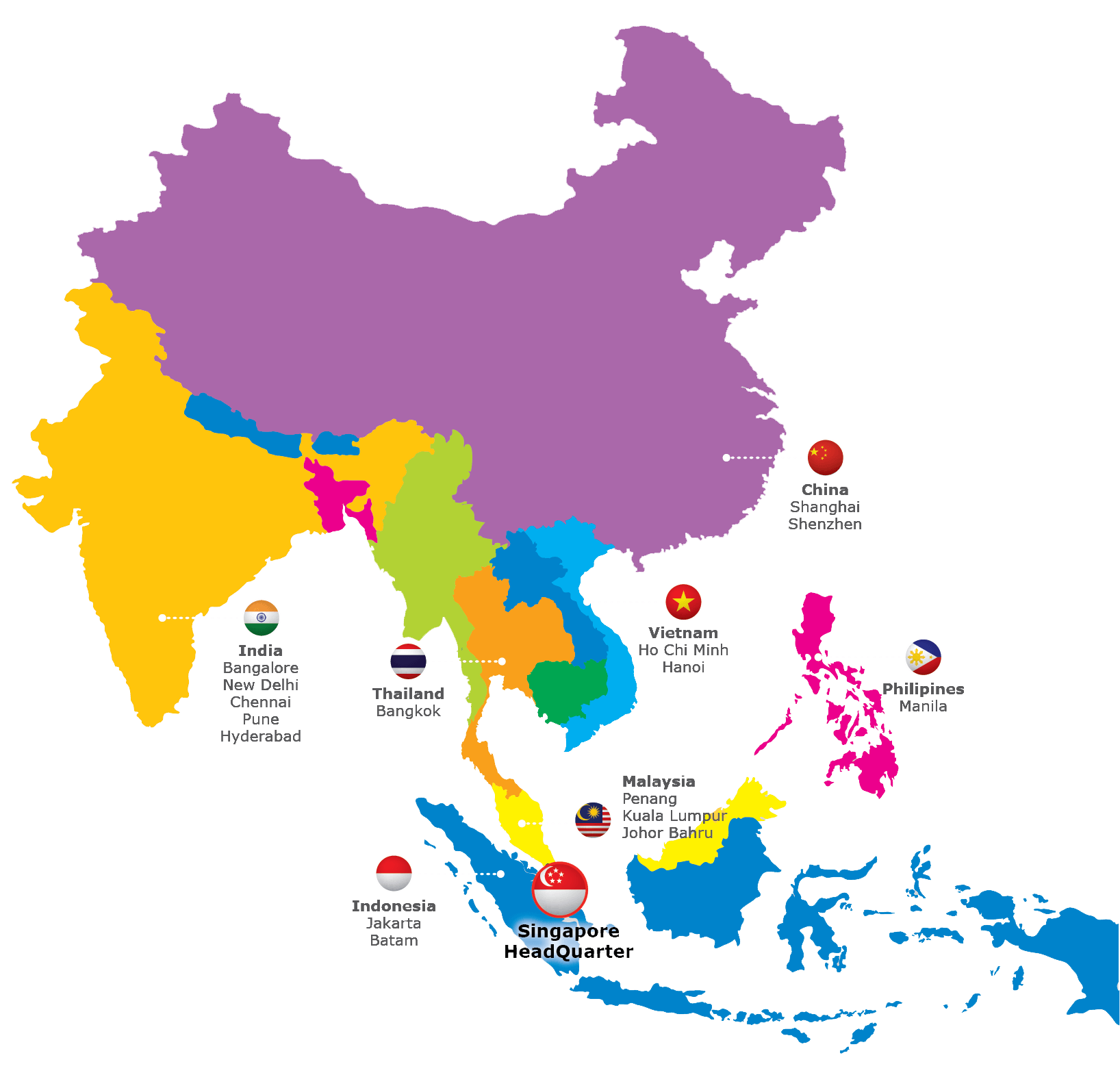iGaming regulations around the world are constantly shifting. Being affiliate marketing software providers who also share a passion for gaming, we strive to remain at the forefront of the latest tech innovations, game launches, and industry movements.
One aspect that can sometimes go unnoticed, yet plays a crucial role in our field, is the regulatory landscape.
Regulations around online gambling, casinos and iGaming are not uniform and can differ significantly across various countries and regions. Though we would love to provide our services without geographical boundaries, the reality is far more complex. Some areas have stringent limitations, while others have opted to liberalize their markets.
Whether you are aiming to enter the iGaming space as a casino owner, operator, or affiliate, navigating this intricate network of international gambling laws and regulations is essential.
As experts in affiliate marketing solutions within the gaming sector, we recognize the importance of understanding these rules.
In this blog post, we will dissect the primary regulatory frameworks across the globe, providing insights tailored for our industry. The gaming world may be without borders, but the rules that govern it are very much rooted in local legislation.
Let’s dive into this complex terrain!
iGaming Regulations in Europe: Strict Rules for Operators
When it comes to iGaming regulations, Europe has some of the strictest rules for operators. As iGaming companies, we have to follow regulations set by the European Union and also individual countries. It can be complicated to keep up with, but it’s important we stay on the right side of the law.
In the EU, online gambling is regulated under the Gambling Act of 2014. This law sets rules around licensing, taxation, consumer protection and responsible gambling. To operate in EU countries, we must obtain licenses for each market and follow laws.
Here are 10 important areas where EU laws or principles may intersect with online gambling regulations in member states:
- Data Protection: The General Data Protection Regulation (GDPR) affects how online gambling sites collect, process, and store personal data.
- Anti-Money Laundering: The EU’s Fourth Anti-Money Laundering Directive imposes obligations on gambling service providers to monitor suspicious activities.
- Consumer Protection: The Consumer Rights Directive (2011/83/EU) applies to online gambling and outlines requirements for clear information, transparency, and the right to withdraw.
- Geo-Blocking: Regulation (EU) 2018/302 prohibits unjustified geo-blocking within the EU, affecting how online gambling sites may restrict access based on location.
- Electronic Identification: Regulation (EU) No 910/2014 (eIDAS) on electronic identification may affect authentication procedures for online gambling platforms.
- Payment Services: The Payment Services Directive 2 (PSD2) has implications for how payments are processed within online gambling.
- Commercial Communication: The Audiovisual Media Services Directive (AVMSD) could affect advertising and marketing practices for online gambling.
- Accessibility Requirements: The Web Accessibility Directive requires public sector bodies to make their websites accessible, and similar principles may extend to private iGaming sites.
- Competition Law: EU competition laws, guided by Articles 101 and 102 of the Treaty on the Functioning of the European Union (TFEU), impact market practices within the gambling sector.
- Freedom to Provide Services: Article 56 of the TFEU ensures the freedom to provide services, influencing how member states may restrict or regulate gambling services from other EU countries.
Some countries have additional requirements. For example, Italy bans most forms of online gambling advertising. In Sweden, operators can’t offer welcome bonuses. The UK, one of the largest iGaming markets, has an extensive licensing process and taxes gaming revenue at a high rate.
Staying compliant requires constant work on our part. Regulations are frequently updated, and penalties for violations can be severe, including fines, license suspension or even criminal charges.
But by prioritizing ethical and responsible operations, we build trust in the communities we serve and ensure the long-term sustainability of our business. It’s not always easy, but for us, it’s worth the effort.
The Complex iGaming Laws of the United States
When it comes to online gambling regulations, the U.S. makes things complicated. As avid gamers ourselves, we’ve navigated the messy laws so you don’t have to.
The Federal Wire Act of 1961 banned interstate sports betting over telecommunications but was recently reinterpreted to allow states to legalize online sports betting and even casino games. However, the Unlawful Internet Gambling Enforcement Act of 2006 prohibits gambling businesses from accepting payments for illegal online betting.
At the state level, it’s a mixed bag. Some states like Nevada, New Jersey, and Pennsylvania have fully legalized online casinos and poker. Others like California and Florida have outlawed all forms of internet gambling. Many states have no official stance, creating uncertainty.
To make matters more confusing, different rules apply for online lottery, daily fantasy sports, poker, sports betting, and casino games. As internet gaming fans, we think regulations should be streamlined and modernized. For now, the only way to know what’s allowed where you live is to check with official state resources.
Here are some of the top federal regulations and laws that impact online gambling:
- The Unlawful Internet Gambling Enforcement Act (UIGEA) of 2006: This law prohibits gambling businesses from knowingly accepting payments in connection with unlawful Internet gambling. It does not define what constitutes legal versus illegal online gambling, leaving that to individual states.
- The Federal Wire Act of 1961: Initially aimed at stopping sports betting across state lines via telephone, the interpretation of this act has been extended to cover internet gambling. The DOJ’s 2011 opinion clarified that the Wire Act only applies to sports betting, but a 2018 opinion reversed this, creating more uncertainty.
- The Professional and Amateur Sports Protection Act (PASPA) of 1992: PASPA made it illegal for states to sponsor, operate, advertise, promote, license, or authorize betting, gambling, or wagering schemes based on competitive games in which amateur or professional athletes participate. In 2018, the Supreme Court struck down PASPA, allowing states to legalize sports betting.
- The Interstate Horseracing Act (IHA) of 1978: This act regulates interstate wagering on horseracing and was amended to include electronic forms of communication, thus applying to online betting on horse races.
- The Indian Gaming Regulatory Act (IGRA) of 1988: This law governs gaming operations on Indian lands and has implications for online gambling operated by Native American tribes.
- The Illegal Gambling Business Act (IGBA) of 1970: This act targets large-scale gambling operations that are in violation of state laws, and it can apply to online gambling operations as well.
- The Restore America’s Wire Act (RAWA): Though not enacted, this proposed law seeks to expand the scope of the Federal Wire Act to prohibit most forms of online gambling.
- Children’s Online Privacy Protection Act (COPPA): This act restricts the online marketing of certain products, including gambling, to children under 13.
- Truth in Advertising Laws: Governed by the Federal Trade Commission (FTC), these laws require that advertising for online gambling be truthful and non-deceptive.
- State Regulations: It’s vital to recognize that individual states have their own laws regarding legal and illegal online gambling. States like New Jersey, Nevada, and Pennsylvania have specific regulations for various types of online gambling, including licensing, operation, and taxation.
The bottom line: iGaming laws in the U.S. are complex with many gray areas. But as more states legalize online betting and casinos, the future looks bright. If internet gaming is your passion, make your voice heard and push for updated legislation in your state.
Asia’s Tightening Stance: Increased Restrictions on Gambling

Tightened Control in China
China has long taken a hard stance against gambling, seeing it as a threat to social order. All forms of gambling are illegal on the mainland, though Macau operates as a special administrative region with its own laws allowing casino gambling.
However, in recent years China has been exerting more control over Macau’s gaming industry.
Regulations imposed in 2019 require closer scrutiny of customers and their sources of funds to curb money laundering. China also banned proxy betting, where players use phones or agents to gamble.
South Korea Bans Most Forms of Gambling
In South Korea, only a few select forms of gambling are permitted, such as horse racing, cycling, and lottery. Casinos are banned except for one foreigner-only casino. An anti-gambling law passed in 1995 banned all other forms of gambling.
However, online gambling and sports betting still take place through offshore websites, though they remain illegal. There have been periodic discussions of legalizing casino gambling to boost tourism, but public opinion remains strongly opposed.
Japan’s Slow Embrace of Casinos
Japan passed a law in 2018 to allow integrated resorts (IRs) that include casinos. After years of debate, the government saw it as a way to boost tourism and tax revenue. However, the law imposes many restrictions, like capping casino space, banning Japanese citizens from entering, and a high tax rate.
The first IRs are not expected to open until the mid-2020s due to a slow bidding and approval process. Public opposition to casino gambling also remains, so future easing of restrictions is uncertain.
As you can see, most Asian countries maintain a prohibition or high regulation of gambling due to cultural attitudes and concerns about addiction and crime. While some have legalized casinos to boost tourism, governments are proceeding cautiously with tight controls and oversight.
As new forms of online and mobile gambling emerge, Asian nations are grappling with how or whether to permit these games as well. Overall, Asia is likely to remain a challenging region for the iGaming industry to break into.
The Rise of Regulated Markets in Latin America

The Rise of Regulated Markets in Latin America
As iGaming continues to grow around the world, more countries are legalizing and regulating online gambling. Several Latin American nations have recently established regulated markets, allowing operators to apply for licenses. This is exciting news for operators looking to expand into new territories.
For us operators, regulated markets mean stable business environments and the potential for partnerships with land-based casinos. Players also benefit from regulated markets, which offer consumer protections and oversight to ensure fair games and responsible gambling.
Some of the new regulated markets in Latin America include:
- Costa Rica: Long an igaming hub, Costa Rica officially regulated sports betting in 2020. The new laws allow operators to apply for licenses, though the market remains quite small.
- Colombia: Colombia legalized online gambling and began issuing licenses in 2017. The market has grown quickly and now includes online casinos, sportsbooks, poker and bingo. Betting on local sports is especially popular.
- Mexico: Mexico’s regulated igaming market launched in 2004 but has remained limited. In 2020, new laws expanded online gambling by allowing private operators to apply for licenses for the first time. However, regulations are still being developed, so the full impact remains to be seen.
- Argentina: Argentina legalized online gambling in 2019 and began issuing licenses for online casinos and sportsbooks in 2021. As the second largest economy in Latin America, Argentina’s new market poses an exciting opportunity despite economic uncertainty.
While regulation often means higher costs of compliance, Latin America’s developing markets offer opportunities for business growth and expansion that outweigh the challenges. Of course, there is no “one-size-fits-all” approach, so operators must consider regulations, cultural preferences, and business climates in each country individually.
With a mix of skill and luck, regulated Latin American markets could be the next big thing in igaming.
Top 60 iGaming Regulations Around The World
Creating a comprehensive list of 100 essential iGaming regulations from around the world would be a massive undertaking as regulations vary widely across jurisdictions. This also can change quickly, as governments constantly update and modify laws. Below is a more general outline of areas that are commonly regulated within the iGaming industry.
Specific details would require an in-depth look at the international gambling laws AND the individual countries or states in question.
- Affiliate Marketing Regulation: Oversight and rules governing the relationships between iGaming operators and marketing affiliates.
- Intellectual Property Rights: Protecting the trademarks, copyrights, and other intellectual properties of the gaming content.
- Player Fund Segregation: Requirements to keep player funds separate from operational funds.
- Self-Exclusion Registers: National or regional databases allowing individuals to exclude themselves from all gambling activities.
- Third-Party Auditing: Regular audits by independent agencies to ensure iGaming legal compliance and integrity.
- Game Content Regulations: Rules governing the type of content that can be included in games (e.g., restrictions on certain themes or symbols).
- Mergers and Acquisitions Oversight: Regulations that govern the merging and acquiring of different iGaming companies.
- Disaster Recovery and Business Continuity Planning: Requirements for plans to deal with various types of operational interruptions.
- Blockchain and Cryptocurrency Regulations: Rules around the use of cryptocurrencies and blockchain technology within iGaming.
- Social Responsibility Initiatives: Expectations or requirements for operators to contribute to social responsibility initiatives or causes.
- Accessibility Standards: Requirements for making iGaming accessible to individuals with disabilities.
- Player Complaint Handling Procedures: Defined processes for addressing and resolving player complaints.
- Insider Betting Regulations: Rules to prevent employees and other insiders from betting on games within their company or using inside information.
- Record-Keeping Requirements: Regulations governing the records that must be kept, and for how long.
- Equipment Certification: Standards and certifications required for the hardware used in iGaming operations.
- Regulations on Bonuses and Promotions: Specific rules regarding the offering of bonuses, promotions, and other incentives to players.
- Anti-Fraud Measures: Requirements for preventing and detecting fraudulent activities, such as identity theft or bonus abuse.
- Land-Based Venue Regulations: In some jurisdictions, there may be specific regulations relating to iGaming terminals in physical locations.
- Seasonal or Event-Specific Regulations: Temporary regulations or guidelines relating to specific events or times of the year (e.g., restrictions during major sporting events).
- Influence on Political Betting: Some regions have rules regarding betting on political events or outcomes, given the sensitive nature of these activities.
- Licensing: Requirements for obtaining a license to operate an iGaming business.
- Age Restrictions: Often limiting gambling to those 18 or 21 years of age or older.
- Taxation: How winnings are taxed, as well as taxes on the operator’s revenue.
- Advertising Standards: Online gaming regulations around how and where gambling can be advertised.
- Game Fairness: Requirements for testing and certifying that games are fair and operate as advertised.
- Responsible Gambling Measures: Tools and requirements to help prevent problem gambling, such as deposit limits and self-exclusion options.
- Data Protection: Ensuring the safety and security of player information.
- Anti-Money Laundering (AML) Measures: Procedures to prevent money laundering through gambling platforms.
- Consumer Protections: Ensuring players are treated fairly and that their rights are protected.
- Jurisdictional Restrictions: Limitations on where an iGaming operator can offer their services, often tied to where they are licensed.
- Payment Processing Regulations: Governing how deposits and withdrawals are handled, and what methods can be used.
- Compliance Monitoring: Ongoing requirements for demonstrating compliance with all applicable regulations.
- Cross-Border Regulations: Rules around offering services across borders, especially within regions like the European Union.
- Technology Standards: Requirements for the technology used in iGaming, such as random number generators.
- Dispute Resolution: Processes for resolving disputes between players and operators.
- Betting Limits and Game Restrictions: Regulations may include restrictions on bet sizes, game types, or other game-related limitations.
- Criminal Background Checks: Often required for key personnel within the iGaming organization.
- Marketing to Vulnerable Populations: Regulations preventing targeting minors or other vulnerable populations in marketing materials.
- Reporting Requirements: Requirements for reporting various aspects of operations, such as financials or incidents of problem gambling.
- Land-Based Partnerships: In some jurisdictions, online operators must partner with land-based casinos or other entities.
- Integration with National or Regional Sports Bodies: Collaboration with sports organizations to ensure integrity in sports betting.
- Crisis Management Protocols: Rules for handling public relations or operational crises.
- Gender Equality Regulations: Guidelines for promoting gender equality within the industry.
- Ethnic and Minority Representation: Rules encouraging or requiring diversity in employment and marketing.
- Loot Box Regulations: Specific rules governing the use of loot boxes and similar mechanisms in online games.
- Customer Due Diligence (CDD) Requirements: Procedures for verifying the identity of customers.
- Information Disclosure to Players: Requirements for disclosing information to players about odds, terms and conditions, and other game-related details.
- Regulation of Virtual Reality (VR) Gaming: Specific guidelines for VR experiences within iGaming.
- Connection with National Health Bodies: Collaboration or requirements to support national health initiatives related to gambling addiction.
- Use of Celebrity Endorsements: Rules surrounding how celebrities can be used in iGaming advertising.
- Educational Requirements for Staff: Training or educational standards for staff, particularly those in customer-facing roles.
- Restrictions on Credit Card Usage: Limitations or bans on the use of credit cards for gambling activities.
- Whistleblower Protections: Safeguards for employees who report non-compliance or other issues.
- Sponsorship Regulations: Guidelines governing how iGaming companies can sponsor events, teams, or venues.
- Live Streaming Regulations: Rules related to the live streaming of sports or other events within betting platforms.
- Use of Big Data and AI: Guidelines for how big data and artificial intelligence can be used within the iGaming sector.
- Green and Environmental Regulations: Standards for environmental responsibility within iGaming operations.
- Player Behavior Monitoring: Guidelines for monitoring player behavior for signs of problem gambling or fraud.
- Regulations on Peer-to-Peer (P2P) Betting: Rules governing betting between players, as opposed to betting against the house.
- Blockchain Smart Contract Regulations: Specific rules about the use of smart contracts within blockchain for iGaming.
References
Looking to dive deeper into the rules and regulations around the world? Here are the most useful resources you can check out for yourself and see the actual data that concerns your business.
- UK Gambling Commission: www.gamblingcommission.gov.uk
- Malta Gaming Authority (MGA): www.mga.org.mt
- Nevada Gaming Control Board: gaming.nv.gov
- New Jersey Division of Gaming Enforcement: www.nj.gov/oag/ge
- Alderney Gambling Control Commission: www.gamblingcontrol.org
- Isle of Man Gambling Supervision Commission: www.gamblingcommission.im
- Gibraltar Regulatory Authority: www.gra.gi
- European Gaming and Betting Association (EGBA): www.egba.eu
- American Gaming Association (AGA): www.americangaming.org
- International Association of Gaming Regulators (IAGR): www.iagr.org
- Federal Trade Commission (FTC) – U.S.: www.ftc.gov
- Australian Communications and Media Authority: www.acma.gov.au
- Spelinspektionen: www.spelinspektionen.se
- ARJEL: www.anj.fr
- GLI (Gaming Laboratories International): www.gaminglabs.com
- Canadian Gaming Association: www.canadiangaming.ca
- Kansspelautoriteit: www.kansspelautoriteit.nl
- UNLV Center for Gaming Research: gaming.unlv.edu
- Belgian Gaming Commission: www.gamingcommission.be
- eCOGRA: www.ecogra.org
These resources should be enough to help you adhear to all the iGaming legal compliance in 2024.
Ready to Get Started?
If you are in the iGaming business, ensuring that your affiliate program aligns with all ethical and security regulations is paramount.
That’s where Scaleo comes in.

Scaleo offers a robust affiliate software solution, designed with compliance at its core.
With advanced security features and a deep understanding of industry ethics, Scaleo takes the guesswork out of regulatory alignment, allowing you to focus on growing your business.
Don’t just take our word for it – try Scaleo free for 14 days and experience how seamlessly it integrates into your iGaming operation. Your success starts with the right tools, and Scaleo is here to equip you with the best.
Last Updated on April 10, 2024





